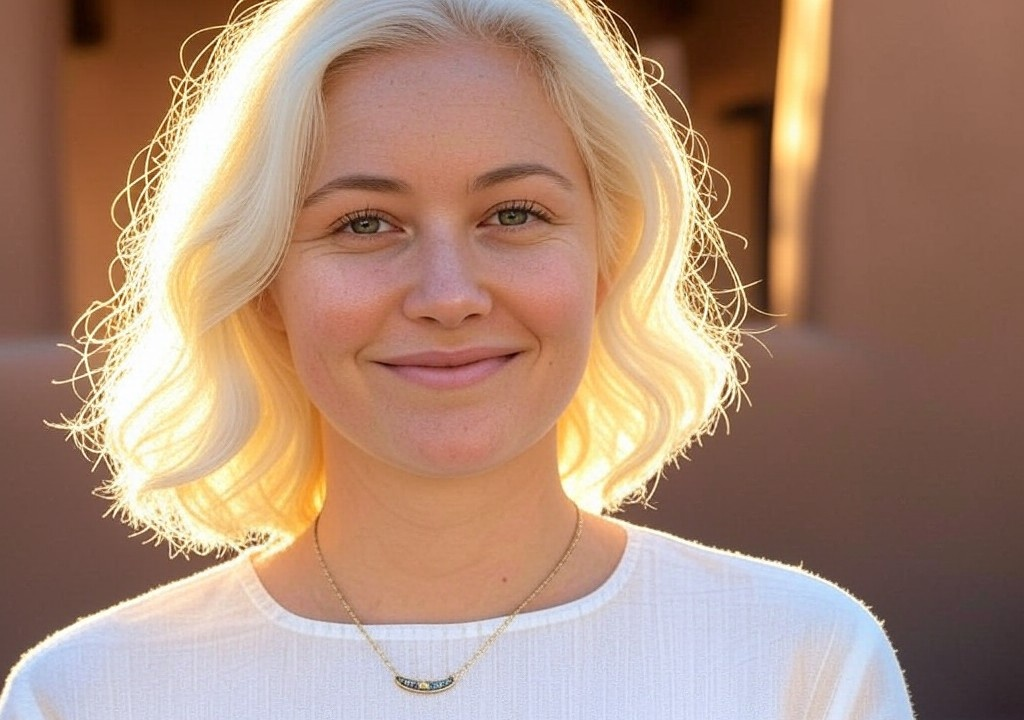Anchored in Identity
What’s in a Name? A Lot, Actually
Growing up, I didn’t meet many other “Lilas.” Truth be told, I sometimes wished my parents had gone with something trendier—like Emily or Sarah, names you could see monogrammed on backpacks at Target. Instead, they picked Lila, a name that sat somewhere between Old Hollywood glam and a character in a dusty Southern Gothic novel. It wasn’t until much later that I realized my parents had gifted me something extraordinary: a name with roots, history, and a little mystery.
Your name is more than just a convenient way to be called for dinner. It’s a story, a descriptor, and sometimes, a bit of a personality decoder. Names are like the cover art to our personal album—uniquely ours, but shaped by the cultural playlists of our families, traditions, and even where we grew up. Knowing your name—where it comes from, what it means (or doesn’t)—offers a surprising pathway to self-discovery, which, let me tell you, matters in relationships more than you might think.
Let’s dig in.
The Origin Story: Why Knowing Your Name Matters
My name, Lila, is Sanskrit in origin, meaning “play” or “divine playfulness.” But it also connects to the Spanish “lila,” for lilac—a small nod to my Southwestern upbringing, with lavender fields stretching into desert sunsets. It’s not just a name; it’s a mashup of beauty, whimsy, and cultural crossroads, all words that feel more like me the older I get.
Your name is often the first thing people associate with you—yes, before your impeccable sense of humor or ability to perfectly lip-sync ‘90s pop lyrics. Knowing the meaning of your name, or at least its origins, can ground you in your identity and offer surprising insights. Is it tied to a location? A family patriarch? A character in an old black-and-white movie your mom once swooned over?
The better you understand where your name comes from, the better you’ll understand the way it’s shaped how others see you—and how you see yourself.
Quick Tip: Ask your parents, grandparents, or whoever bestowed your name on you to share their reasoning. Storytime with Grandma might uncover some family lore you didn’t know existed (bonus points if it’s juicy).
Do You Live Up to Your Name?
If your name were an adjective, what would it mean? Growing up, “Lila” often felt like a mismatch for my personality. It sounded poetic, sophisticated—a debutante in pearls sipping tea at high noon. But I was a scrappy, messy-haired kid, trekking through art markets and leaving chalk smudges all over my clothes.
It’s only recently that I’ve started to feel like I actually fit my name—or maybe I’m growing into it. There’s a soft strength in the sound of it, juxtaposed with its playfulness, and that duality feels right for someone like me: a writer caught between dust storms and art galleries.
A name doesn’t dictate who we are, but it can reveal how others might perceive us. That perception, in turn, might influence how we carry ourselves, approach relationships, or express vulnerability. Have you ever met someone who was totally their name? Like, you hear “Jake” and think, yeah, that guy probably has a dog named Whiskey and can finish a beer in three gulps. Or maybe you meet a “Clementine” and immediately picture her barefoot with a flower crown. Our names sometimes carry these subtle expectations, whether we realize it or not.
Challenge Yourself: Think about whether you align with your name’s vibe. Are you more Max than Maxwell? Do you love or cringe at your childhood nickname? Self-reflection like this doesn’t just connect you to your identity—it could spark some interesting dinner date conversations, too.
Names and Relationships: The Ultimate Icebreaker
Here’s the thing about names: they can be the ultimate conversation starter (or stopper). I’ve lost count of how many first-date stories began with someone saying, “That’s such a pretty name—what does it mean?” And sure, that’s often code for “help me keep this small talk going,” but it works.
In relationships, your name—and how your partner uses it—quickly becomes a cornerstone of affection. Think about it: nicknames, playful twists, and even how they say it in frustration (“Liiiiila, stop rearranging the furniture!”) carry their own kind of intimacy. I’ve always been fascinated by how we shape names in relationships. It’s like each version becomes shorthand for how they see you.
And let’s not forget pet names. If my partner called me “Pumpkin” or “Snookums,” I would probably expire on the spot. But someone whispering “Lila” with a bit of a smile? Yeah, that’ll do.
Own Your Name, Own Yourself
If you’re rolling your eyes because your name feels more ordinary, like Sarah or John, let me remind you: names only get boring if you let them be boring. A “Sarah” can be legendary if you lean into it. A “John” can redefine what “classic” looks like with the right perspective. The key is embracing it—quirks, history, Starbucks misspellings, and all.
Try writing your name in different fonts on a piece of paper. Or imagine the backstory of a character with your name living in a different era (you know, for fun and to flex those creative muscles). What you’ll find, I promise, is that your name will feel so utterly “you” that you couldn’t picture being called anything else.
Pro Tip: If you’re really struggling, consider a remix! Swap that full name for its cooler nickname equivalent, or go by your middle name for a trial run. It’s all about what feels authentic to your core self.
Conclusion: From Name to Legacy
At the end of the day, your name is one of the first stories you’ll ever tell about yourself. It precedes you in introductions, echoes in moments of anger or love, and lingers long after you’re gone. Treat it like the heirloom it is—polish its meaning, celebrate its quirks, and own it as something only you can carry into the world.
More than that, though, embracing your name helps you embrace yourself—and that’s the kind of confidence that radiates like the late-afternoon sun hitting adobe walls (had to sneak in a Santa Fe reference).
So, next time someone mispronounces your name or asks, “Wait, what does it mean?” smile like you’ve got a secret, and tell them. Because when you’re anchored in who you are, that’s a connection no one can ever take away.




















